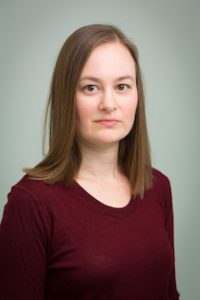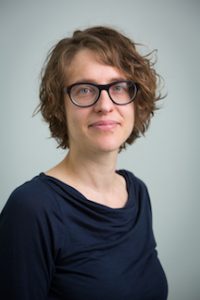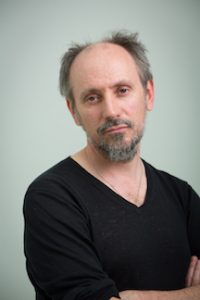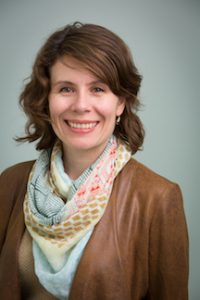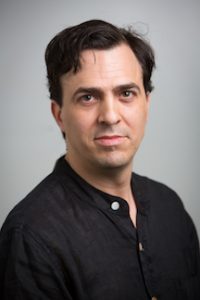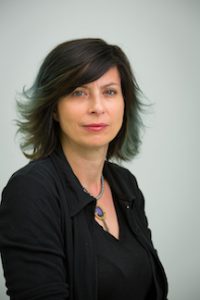Scholars@Hallwalls 2016-2017
The Scholars@Hallwalls Lecture Series Features New Research from the 2016-2017 Faculty Fellows
Hallwalls Contemporary Arts Center, a space for experimental art, music, and film located in the heart of Buffalo at Delaware and Tupper, is the perfect setting for a sixth year of the Humanities Institute’s Scholars@Hallwalls lecture series. These monthly presentations feature one fellow’s research in an engaging lecture with lively follow-up conversation. This year’s lineup highlights the interdisciplinary range of humanities research at UB.
Talks are on Friday afternoons at 4 pm and are free and open to the public. Complimentary wine and hors d’oeuvres are served. Please join us for any or all of the Scholars@Hallwalls talks!
Hallwalls Contemporary Arts Center
341 Delaware Avenue
Map
‘Girls Invade, Shrinks in Trauma’: Feminism and the Politics of Psychiatric Diagnosis, 1970-1990
September 16
Historian Susan Cahn opens our series with her talk titled “‘Girls Invade, Shrinks in Trauma’: Feminism and the Politics of Psychiatric Diagnosis, 1970-1990.” By examining the struggle between second-wave feminists and the psychiatric establishment, Cahn investigates the history and politics of medical diagnoses. She looks at the American Psychiatric Association’s revision of its Diagnostic and Statistical Manual as a point of gendered conflict, examining in particular the construction of Borderline Personality Disorder. Was it coincidental that women’s anger and sexual desire—claimed proudly by feminists—became key symptoms of illness in “borderline” women?
Bodily Politics: Frank Speech and the Health of the Greek City
October 21
Classics professor Dana Fields, examines how Greek writers of the Roman Imperial period use metaphors of medical practice to talk about frank speech (parrhēsia). In public assemblies, interactions among the oligarchic class, and even works addressed to the Roman emperor, the metaphors of drugs, cutting, and cauterization justify the special authority claimed by the frank speaker, which can contradict both Roman hierarchy and the Greek premium on freedom.
Captain Cook’s Tools for Ethnography
November 11th
English professor Ruth Mack explores the relation between Cook’s navigational experience on the Endeavour Voyage (1768-71) and the descriptions of societies Cook offered in his journal. How does Cook, the technical navy man, comfortable with terse entries in the captain’s log, come to write in a fashion we might now call “ethnographic”? Mack argues that navigation does not merely accompany but provides the very basis for Cook’s self-conscious and experimental writing about culture.
One Night in Beirut: When Said met Genet
December 2
The great Palestinian literary critic and political activist Edward Said met the famous French homosexual novelist Jean Genet in Beirut in 1972. In his December 2nd talk, “One Night in Beirut: When Said met Genet,” musicologist James Currie will discuss how this encounter haunted Said’s thinking in his later years before his death in 2003, acting as a subterranean influence on the project Said started with the conductor Daniel Barenboim and claimed was the most important of his life: the famous Arab and Israeli youth orchestra, the West-Eastern Divan.
Where the Drugs Are
February 10
We kick off the spring semester with English professor Elizabeth Mazzolini’s talk, “Where the Drugs Are,” an ecocritical look at representations of three different drug epidemics—those of crack, meth, and opioids. Mazzolini links drug production, sale, and use to the allowances of various locations and to ideological investment in the idea of place. In doing so, the paper will reveal some unexpected continuities between emplacement and addiction. Mazzolini’s talk argues that discourse about illicit drugs is implicitly environmental discourse, and that ecocritical analysis can reveal overlooked but crucial elements of social phenomena.
The Sensation of Time: Reading Water with Roni Horn and Clarice Lispector
March 10Rescheduled to April 21
French professor Fernanda Negrete will show how Horn’s installation “Library of Water” (2007 – present) and Lispector’s poetic meditation Água viva (1973) propose an aesthetic reading practice that exposes us to what Gilles Deleuze (drawing Paul Cézanne’s quest to paint “the instant of the world”) defined as the sensation of time. Aesthetic time, Negrete will show, emerges for the reader as an effect of perspectival decentering that dissolves the opposition between self and world to rethink intersubjectivity fluidly.
Messy Ground: Wind, Profits and Livelihoods
April 7
Jaume Franquesa’s talk, “Messy Ground: Wind, Profits and Livelihoods,” offers a historically informed and ethnographically grounded study of the unparalleled development of wind energy in Spain. Franquesa analyzes the contradictions pervading this process (local opposition, boom-and-bust cycles, and modest environmental benefits) and reveals them as the result of continuities with the inherited energy model, characterized by centralized decision-making, corporate control, and the concentration of production in marginalized rural regions. His talk is part of the new energy humanities approach, which develops a sociocultural understanding of energy and energy transitions.
Room in Hotel America
May 5
On May 5th, Christina Milletti will read a selection from her novel-in-progress, Room in Hotel America, which investigates the lost history of a wealthy Cuban family who immigrated to the USA in 1924, then withdrew into the posh, opportunely named Hotel America. Presented as a series of documents, both real and imagined, Room’s fictional “space” offers an architecture for encountering patriarchal power—from the insularity of a single room to the realm of global politics—at a moment when relations between the US and Cuba have become increasingly fluid.
All photographs on this page by Douglas Levere.
Save

